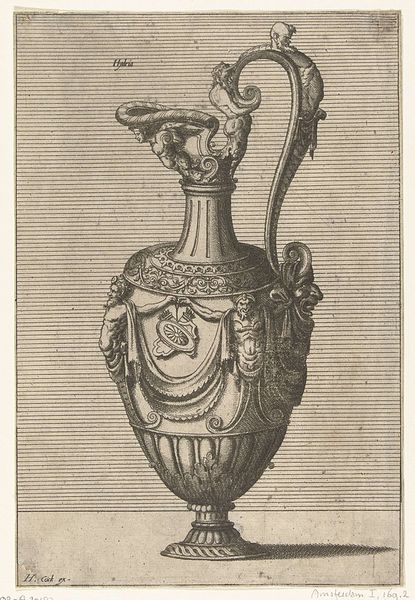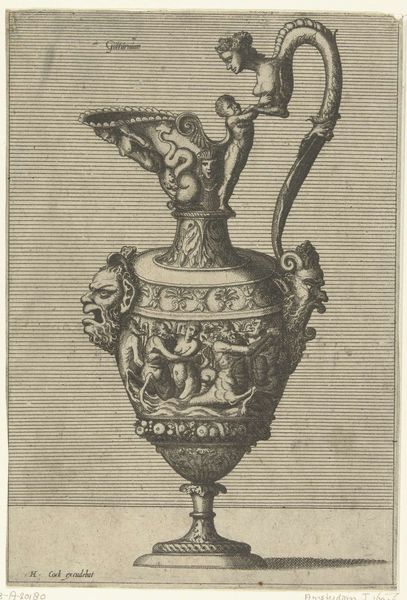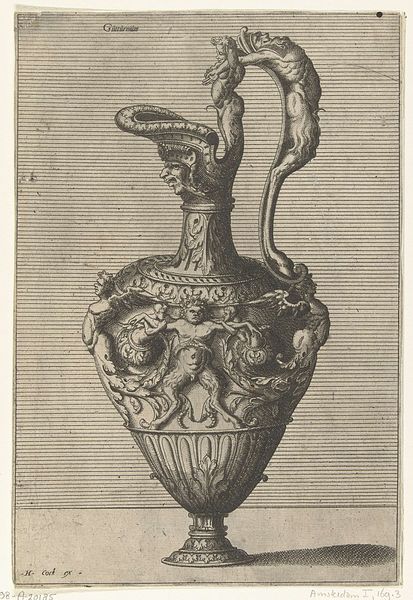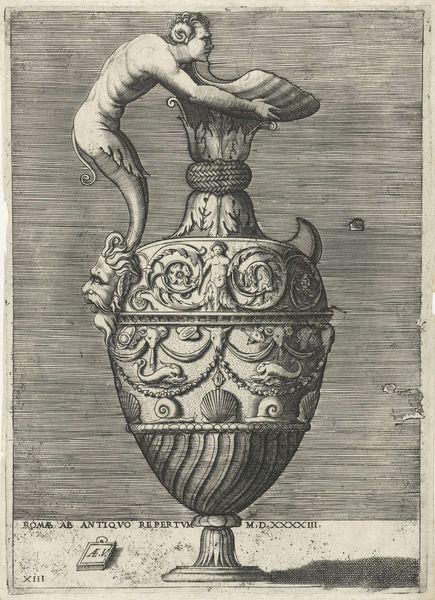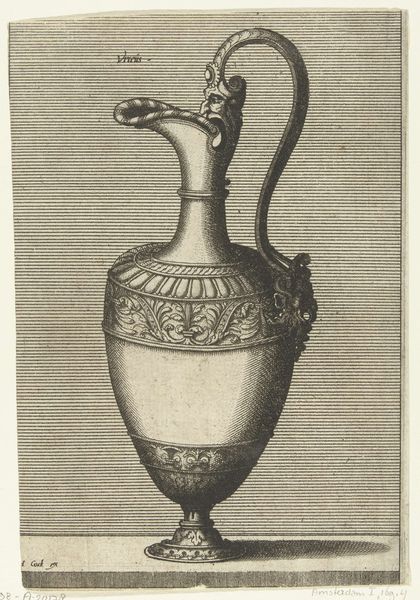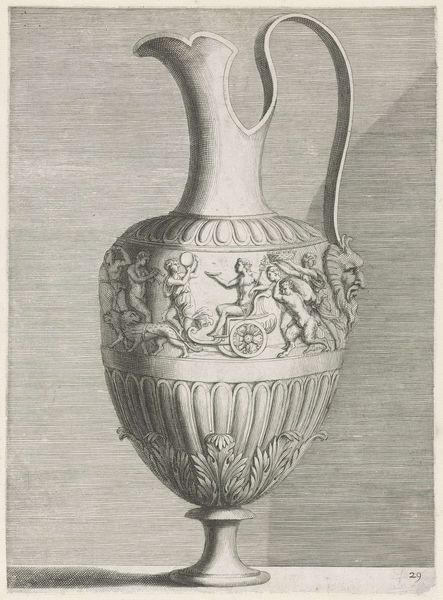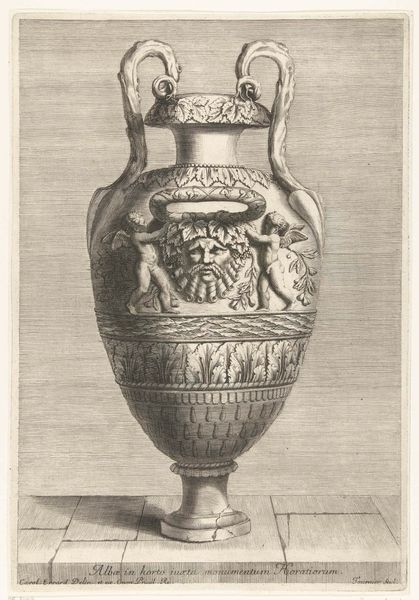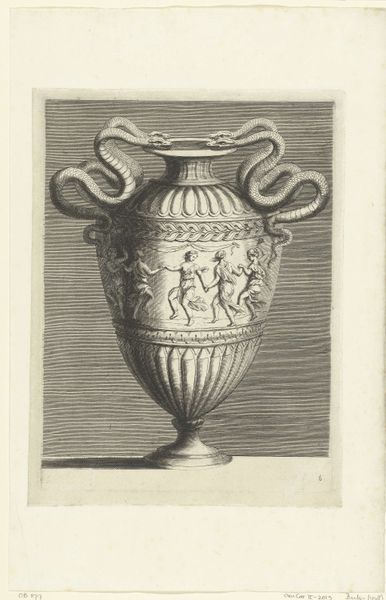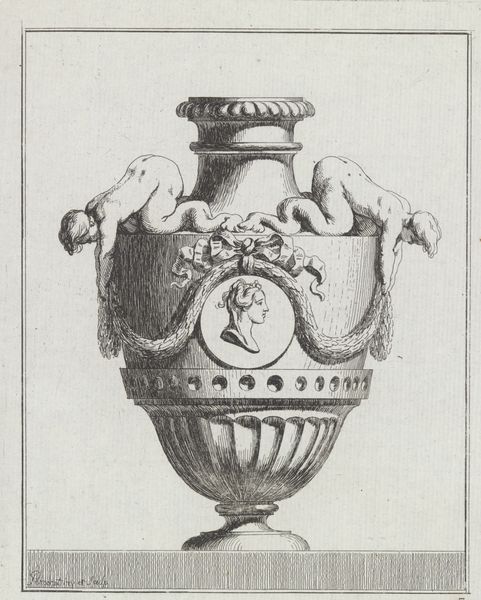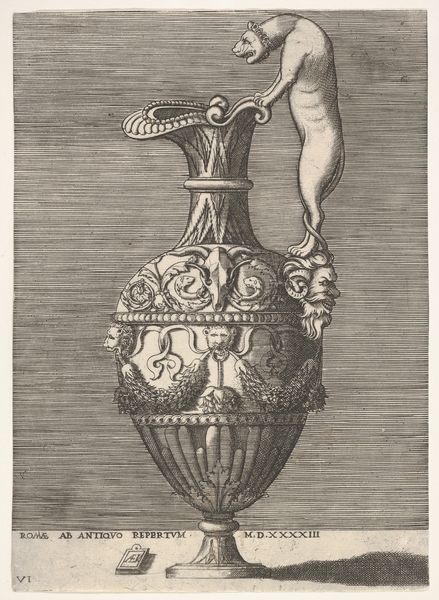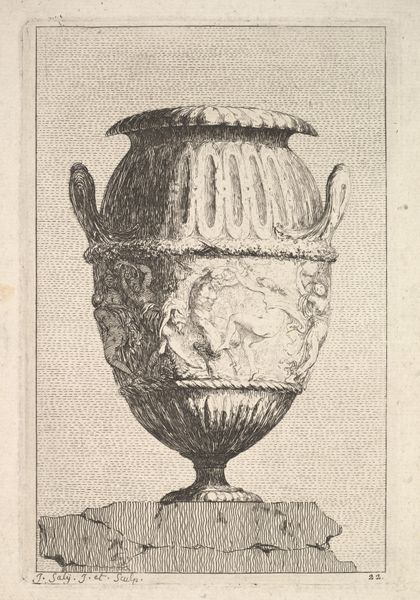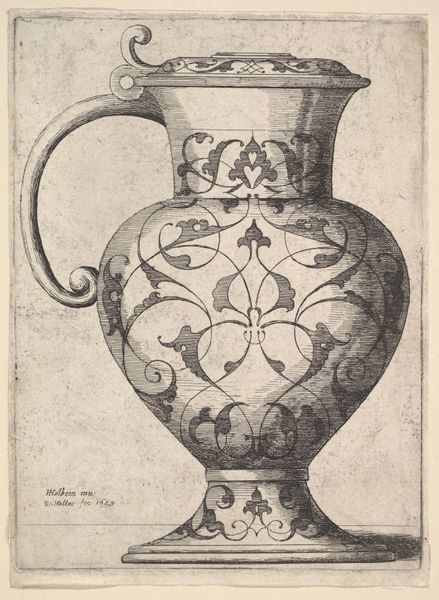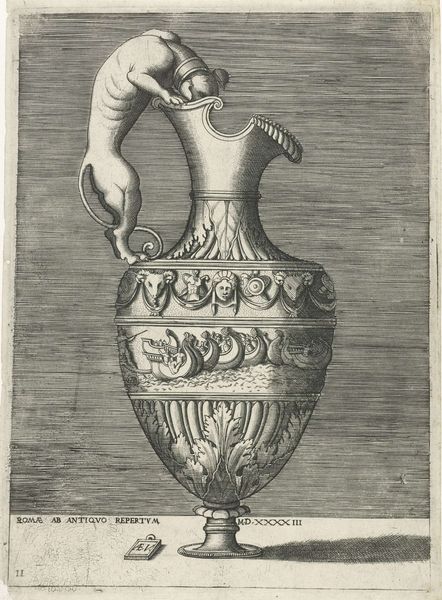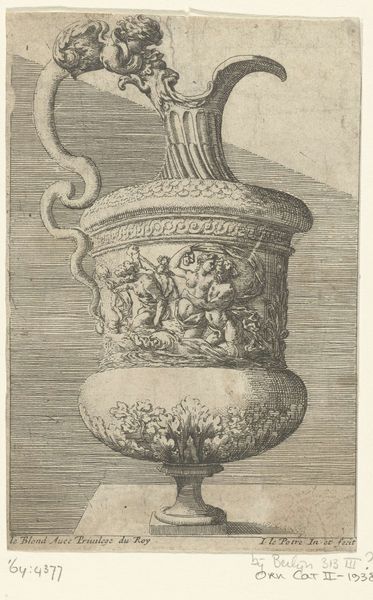
drawing, graphic-art, print, metal, engraving
#
drawing
#
graphic-art
#
allegory
# print
#
metal
#
mannerism
#
figuration
#
form
#
11_renaissance
#
line
#
history-painting
#
engraving
Dimensions: height 205 mm, width 309 mm
Copyright: Rijks Museum: Open Domain
This print of a “Gutturnium” was made with an engraving technique by Johannes and Lucas van Doetechum. The method of engraving involves cutting lines into a metal plate, which are then filled with ink and transferred to paper. The striking thing is how this process allows for incredible detail. Note the texture of the figures, the intricate patterns, and the illusion of three-dimensionality. All achieved by the strategic use of line. But engravings like this were not just about technical skill. They also played a crucial role in disseminating designs and ideas. Imagine this image circulating among craftspeople, inspiring new forms and decorative motifs in ceramics and metalwork. It speaks to a world where craft and commerce were deeply intertwined, where the skills of the engraver contributed to the broader landscape of design and consumption. It’s a reminder that even a humble print can offer insight into the flow of creativity and cultural exchange.
Comments
No comments
Be the first to comment and join the conversation on the ultimate creative platform.
